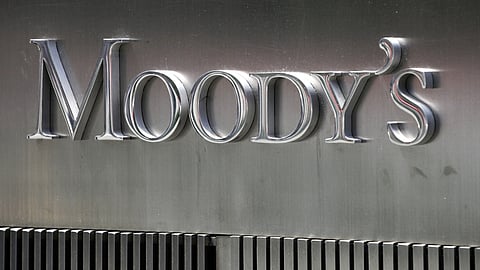
- NEWS
- the EDIT
- COMMENTARY
- BUSINESS
- LIFE
- SHOW
- ACTION
- GLOBAL GOALS
- SNAPS
- DYARYO TIRADA
- MORE

Credit watchdog Moody’s Ratings (Moody’s), citing the series of economic reforms under President Ferdinand Marcos Jr., has affirmed the Philippines’ investment-grade rating of “Baa2” with a “stable” outlook.
Moody’s referred to the country’s reforms to liberalize the economy, fiscal consolidation efforts, and robust macroeconomic fundamentals for its latest action.
According to Moody’s, “The passage of reforms over the past several years to liberalize the Philippine economy will support medium-term growth potential by supporting a business-friendly environment and attracting foreign investments.”
During the second quarter of 2024, the Philippine Statistics Authority reported a 6.3 percent year-on-year gross domestic product (GDP) growth.
Moody’s expects inflows of foreign direct investments to continue rising in 2024-2025. These inflows will be driven by strong investor interest in the energy, manufacturing, and information and communications sectors.
Under its “Build Better More” initiative, the Marcos administration vowed to spend at least 5 percent of GDP on infrastructure projects to support business activities.
Finance Secretary Ralph Recto said the Moody’s rating and outlook will further enable the country to secure affordable financing to build projects.
“Moody’s affirmation is another victory for Filipinos as this means greater access to more affordable financing to support our projects. These will create more quality jobs, increase incomes, and reduce poverty incidence in the country,” he said.
Recto added the proceeds from future borrowings will augment funds from government revenues.
He said revenue-collecting government agencies remain on track to hit the total target of P4.13 trillion for this year.
BIR, BoC collections rise
The Bureau of Internal Revenue (BIR) and the Bureau of Customs (BoC) contributed P1.84 trillion in revenues, growing by 10 percent compared to the year-ago level.
Recto expects the BIR and the BoC to increase tax collections by 11.8 percent each year to ensure sufficient funds for numerous government projects toward higher economic growth seen to increase by 8.7 percent by 2028.
“With our growth-enhancing fiscal consolidation plan in place, we ensure that we have adequate fiscal space to invest on infrastructure, education, human capital development, and social protection programs, which have high multiplier effects on the economy,” he said.
Rizal Commercial Banking Corp. chief economist Michael Ricafort said household and private businesses’ spending will likely grow based on “stronger employment, banks’ loan data, and better corporate sales and earnings reports by other listed companies.”
“The gross international reserves as of July 2024 increased by $1.5 billion as new two-year highs or since March 2022 and still well above the $100 billion mark for the 10th straight month.
This could still support the country’s relatively stronger external position and relatively favorable credit ratings,” Ricafort continued.
